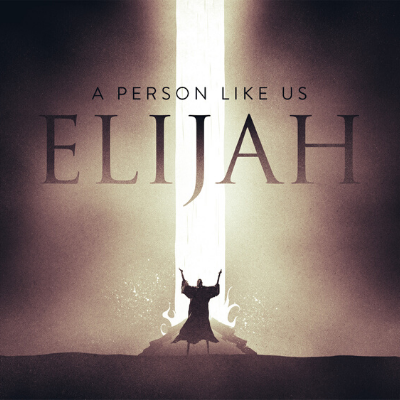SERMON SUMMARY
[1] Events before the conflict at Mt. Carmel How do you bring revival to people who are spiritually impoverished and far-removed from God? What kind of a leader will it take to get these people’s attention? I’d like to suggest three candidates for the job. Years of famine—and of private seclusion (1 Kings 17:3)—are coming to a close (18:1). Although Elijah no doubt enjoyed his years in Zarephath, this obedient servant puts himself completely at God’s disposal. Being a man of action, he likely was ready for this new challenge. In contrast, Ahab, the king, was crassly materialistic. Whereas his chief concern during a famine should have been the welfare of his people, he was more concerned about mules than about men (v. 5). Not only did Ahab ignore God’s wise counsel about things, he fully embraced the counsel of his evil wife, Jezebel. Together they took the nation down. Our third character, Obadiah, is baffling. He was the head domestic administrator over the king’ affairs. He was sharp, and he had a place of strategic leadership in Israel. He also was a true believer (v. 3). But he was one of God’s timid saints. He wanted to get along with evil King Ahab too much—fearing the cost of going against him. It appears that Obadiah become too comfortable with the apostate culture in which he lived. So there was a limit to his devotion and courage (v. 7-12). Notice that it was only at the end of his statement that Obadiah tacked on his testimony (v. 12)! Often when I challenge someone to take a stand for God today, they’ll tell what they did for Him 20 years ago! That’s what Obadiah did (v. 13). How about you? Obadiah had dedication—but with reservation (v. 13-15). A lot of Christians serve God when it is convenient, when it’s not costly, when it doesn’t affect our reputation with our unbelieving friends.
[2] Events during the conflict Obadiah told Ahab that Elijah wanted to meet with him—and the sparks began to fly (v. 16-18)! Ahab had the power to end Elijah’s life right there, but Elijah had the courage of his convictions, as he publicly aired Ahab’s sins. Elijah knew the presence of Almighty God, and that made all the difference! Elijah even issued a command to the king—and he obeyed (v. 19-20)! Hundreds of false prophets gathered, adorned in fancy prophet robes, Ahab and Jezebel were in their royal regalia, the people of Israel streamed in—and there’s Elijah, in his drab garments and long, matted hair! But don’t feel sorry for Elijah—God is with him, and he knows it. The people were stunned as they realized the choice they needed to make (v. 21 cf. Matthew 7:13). Elijah was in charge; he set the agenda (v. 22- 25). He is precipitating a crisis. After hours of frantic effort, Elijah mocked them (v. 27-29)—and now it’s his turn (30-35)! And then, Elijah prayed (v. 36-37). Contrast the prayers of the false prophets with the prayer of Elijah: they are shouting and appealing to their god for six long hours. Elijah’s prayer lasts less than a minute. Elijah wasn’t trying to impress God or anyone else. His only concern was that God be vindicated—and was He (v. 38-39)?! Elijah spoke just once more—he commanded that all the prophets of Baal be slaughtered (v. 40). What an incredible scene—in the morning, the nation was thoroughly apostate, but by evening the prophets of Baal were dead and true religion re-established!
America is in deep trouble today, but God can reverse things very quickly, if he chooses to—and He’s looking for some 21st century “Elijahs”. He can’t use “Obadiahs” greatly; they’re too accommodating to the culture. Elijah was a man just like us (James 5:17); God can use anyone who is sold out to him without reservation. Are you an Elijah, or an Obadiah? “How long will you hesitate between two opinions? If the Lord is God, follow Him; but if Baal, follow him.” (v. 21).
APPLICATION / CHALLENGE
- Are you a TLO (“This Life Only”) Christian, or are eternal goals and values your perspective?
- Do you suffer from Obadiah’s malady, “dedication with reservations”?
- Whom do you fear most, God or man?
- If necessary, are you willing to stand alone for God?
TAKE ONE STEP
Each week, write down one doable concrete step of obedience, small or large, that you will put into practice this week. (James 1:22: “But prove yourselves doers of the word, and not merely hearers who delude themselves.”)


